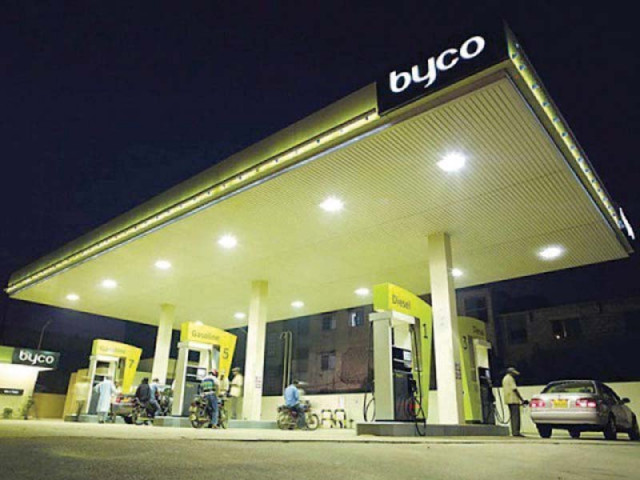New crude supplier: Byco expects oil import from Iran at a discount
Waits for lifting of sanctions to capitalise on the opportunity.

Byco’s refining capacity has jumped to 155,000 barrels per day (bpd) after the completion of work on its second unit of 120,000 bpd, making it the country’s largest refinery.
A top official of the country’s largest refinery, Byco, has announced that the company is ready to import oil from Iran after international sanctions are lifted.
“Byco refinery may take advantage of crude oil imports from Iran at discounted rates after the expected removal of international sanctions,” said Asad Siddiqui, Chief Financial Officer of Byco, while talking to the media.
He said Byco had the potential to capitalise on the opportunity as opposed to other refineries that had long-term contracts with crude suppliers. Owing to the agreements covering the long run, it is comparatively difficult for these refineries to switch over to new crude sources.

Siddiqui believed that perhaps Iran would offer a discount on crude oil supplies in an effort to open up its market and it would prove beneficial for Pakistan.
Byco has completed one of the two new projects for isomerisation and has relatively short-term crude supply agreements that allow the refinery to go for Iranian crude. It also had past experience of refining the Iranian crude before supplies were stopped due to international sanctions, he said.
Byco’s refining capacity has jumped to 155,000 barrels per day (bpd) after the completion of work on its second unit of 120,000 bpd, making it the country’s largest refinery.
Previously, Pak Arab Refinery (Parco) was the biggest refinery with refining capacity of 90,000 bpd, followed by 68,000-bpd capacity of National Refinery, 48,000 bpd for Pakistan Refinery and 45,000 bpd for Attock Refinery.
Siddiqui disclosed that following the consolidation of its business model, the company would turn in a profit for the first time for the quarter ended March 2015 that would set the direction for an improved financial position in the future.
He said Byco management had decided to consolidate its refining business before going for expansion of retail outlets. “The focus of our marketing team has been on furnace oil sales and we have been able to secure furnace oil business from Nishat Chunian, K-Electric, Tapal, Liberty and Hub Power Company.”
The refinery was facing hurdles in the wake of levy of turnover tax, but Siddiqui said the authorities had not only understood the tax anomaly, but were also committed to clarifying things.
The refinery was offered a tax holiday for seven years at the time of its establishment and there was no turnover tax. It was imposed later but the government agreed to do away with the levy.
“About 95% of oil pricing is based on the crude oil rate, meaning that turnover tax could simply eat away the entire profitability,” Siddiqui remarked.
He said the completion of isomerisation and de-sulphurisation plants in a couple of months would convert the refinery’s entire naphtha production into motor spirit (petrol) that would double its production from 12,500 bpd and reduce costs.
He pointed out that the government had praised the cooperation extended by Byco in controlling the petrol crisis earlier this year and it now looked forward to taking benefit of the refinery’s location and infrastructure.
The refinery could directly provide furnace oil to Hubco next door while Pakistan State Oil (PSO) is also taking advantage of Byco’s single-point mooring facility at the port.
“All major oil marketing companies including PSO, Hascol, Caltex and Shell as well as smaller companies are lifting products from the Byco refinery,” Siddiqui said.
Published in The Express Tribune, April 28th, 2015.
Like Business on Facebook, follow @TribuneBiz on Twitter to stay informed and join in the conversation.



















COMMENTS
Comments are moderated and generally will be posted if they are on-topic and not abusive.
For more information, please see our Comments FAQ